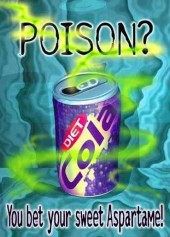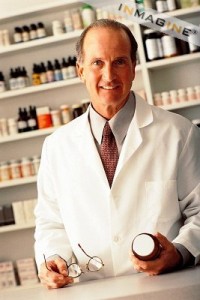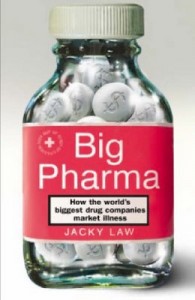Artificial sweeteners especially aspartame has gotten a bad rap over the years, most likely due to studies showing they cause cancer.
But not to worry Ajinomoto the company that makes Aspartame has changed the name to AminoSweet. It has the same toxic ingredients but a nice new sounding name.
And if you or your child happens to be allergic to Aspartame, well don’t take it personally. It’s just business.
Despite the evidence gained over the years showing that aspartame is a dangerous toxin, it has remained on the global market . In continues to gain approval for use in new types of food despite evidence showing that it causes neurological brain damage, cancerous tumors, and endocrine disruption, among other things. 
Most consumers are oblivious to the fact that Aspartame was invented as a drug but upon discovery of its’ sweet taste was magically transformed from a drug to a food additive. HFA wants to warn our readers to beware of a wolf dressed up in sheep’s clothing or in this case Aspartame dressed up as Aminosweet.
Over 25 years ago, aspartame was first introduced into the European food supply. Today, it is an everyday component of most diet beverages, sugar-free desserts, and chewing gums in countries worldwide. But the tides have been turning as the general public is waking up to the truth about artificial sweeteners like aspartame and the harm they cause to health. The latest aspartame marketing scheme is a desperate effort to indoctrinate the public into accepting the chemical sweetener as natural and safe, despite evidence to the contrary.
Aspartame was an accidental discovery by James Schlatter, a chemist who had been trying to produce an anti-ulcer pharmaceutical drug for G.D. Searle & Company back in 1965. Upon mixing aspartic acid and phenylalanine, two naturally-occurring amino acids, he discovered that the new compound had a sweet taste. The company merely changed its FDA approval application from drug to food additive and, voila, aspartame was born.
G.D. Searle & Company first patented aspartame in 1970. An internal memo released in the same year urged company executives to work on getting the FDA into the “habit of saying yes” and of encouraging a “subconscious spirit of participation” in getting the chemical approved.
G.D. Searle & Company submitted its first petition to the FDA in 1973 and fought for years to gain FDA approval, submitting its own safety studies that many believed were inadequate and deceptive. Despite numerous objections, including one from its own scientists, the company was able to convince the FDA to approve aspartame for commercial use in a few products in 1974, igniting a blaze of controversy.
In 1976, then FDA Commissioner Alexander Schmidt wrote a letter to Sen. Ted Kennedy expressing concern over the “questionable integrity of the basic safety data submitted for aspartame safety”. FDA Chief Counsel Richard Merrill believed that a grand jury should investigate G.D. Searle & Company for lying about the safety of aspartame in its reports and for concealing evidence proving the chemical is unsafe for consumption.
The details of aspartame’s history are lengthy, but the point remains that the carcinogen was illegitimately approved as a food additive through heavy-handed prodding by a powerful corporation with its own interests in mind. Practically all drugs and food additives are approved by the FDA not because science shows they are safe but because companies essentially lobby the FDA with monetary payoffs and complete the agency’s multi-million dollar approval process.
Changing aspartame’s name to something that is “appealing and memorable”, in Ajinomoto’s own words, may hoodwink some but hopefully most will reject this clever marketing tactic as nothing more than a desperate attempt to preserve the company’s multi-billion dollar cash cow. Do not be deceived.






 sending...
sending...